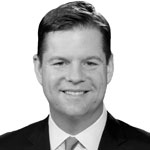The San Francisco Police Department is going through incredibly challenging times. The recent officer-involved shooting deaths of Mario Woods, Luis Gongora, and Jessica Williams combined with the revealed racist text messages, multiple independent investigations, and protests have thrust the police, their use of force, and conversations about reform into the spotlight.
Law enforcement officers have one of the most difficult jobs in San Francisco. Their acts of daily bravery go largely unnoticed and unrecognized, but their mistakes are quickly amplified. The vast majority of our police officers go their entire careers serving the public with distinction. Yet, even when one officer exhibits questionable actions, behaviors, or statements, trust between local law enforcement and communities is tested.
The dialogue around public safety, police, and the use of force is welcome. In the wake of recent events and the uptick in crime in our neighborhoods, we should be talking about how we enhance public safety by getting more officers in our neighborhoods, increasing foot patrols, about body-worn cameras, de-escalation and implicit-bias training, and equipping our officers with tasers and less lethal options.
As these difficult and important conversations regarding reforms progress, I believe that we cannot let the anti-police sentiment that has permeated headlines drive us away from common-sense reforms. There is a small segment of San Francisco that literally believes the city would be in a better place without a police department.
I obviously disagree.
Are there clearly some individuals who should not be police officers in San Francisco? Of course. But I believe we must also acknowledge that there are bad apples in every walk of life and organization. What matters is the reaction to and repercussions for the bad apples. In every instance so far, former chief Greg Suhr, the mayor, the Board of Supervisors, the Police Officers Association, and the Police Commission have acted swiftly and forcefully to say there is no room for bigotry in the San Francisco Police Department.
We cannot lose sight of the progressive reforms our police department instituted well before any of the recent controversies and have pledged to implement in the aftermath of these incidents. We have a police department that is one of the most progressive police departments in the country. We implemented crisis-intervention and deescalation training for our officers who are often the first contact to individuals on our streets experiencing a mental health crisis. Under Chief Suhr’s tenure, the police department promoted more women and people of color to command staff than ever before.
In this upcoming budget year, the city has proposed a $17.5 million police reform package to fund comprehensive police reforms that will increase public safety and build greater trust between police officers and our neighborhoods. These investments are real and show the city’s and the police department’s commitment to implementing further common-sense police reforms and to strengthening the bridges between our police officers and our communities. In fact, the proposed reforms working their way through the Police Commission are considered the most progressive reforms in the country.
I believe we cannot lose sight of the fact that our police officers are human beings, most have families, and they wake up and go to work every day willing to put their lives on the line to protect the public and our city. A number of my childhood friends are police officers. I do not know a single one who is not embarrassed and outraged about the recent racist text messages, or would do everything to never fire their weapon while in the line of duty. They understand that they need the trust of their communities to do their job effectively.
Trust is everything. Trust is the foundation of the relationships we build and maintain with our family, friends, and community. Trust between our communities and local law enforcement is essential to the public safety of San Francisco. The past, ongoing, and proposed reforms show the city’s commitment to fostering the trust needed for police officers to do their jobs effectively.
Our democratic society, and without a doubt our city of San Francisco, thrives on engaged public debate. It is how we make progress. However, in this dialogue, we cannot lose sight of the fact that the men and women of our police department have dedicated their careers to serve our city and its residents, and as we engage in debates about police practices in the future, I for one believe they deserve our respect and gratitude. They have my commitment, and I believe deserve that commitment from every San Franciscan.





